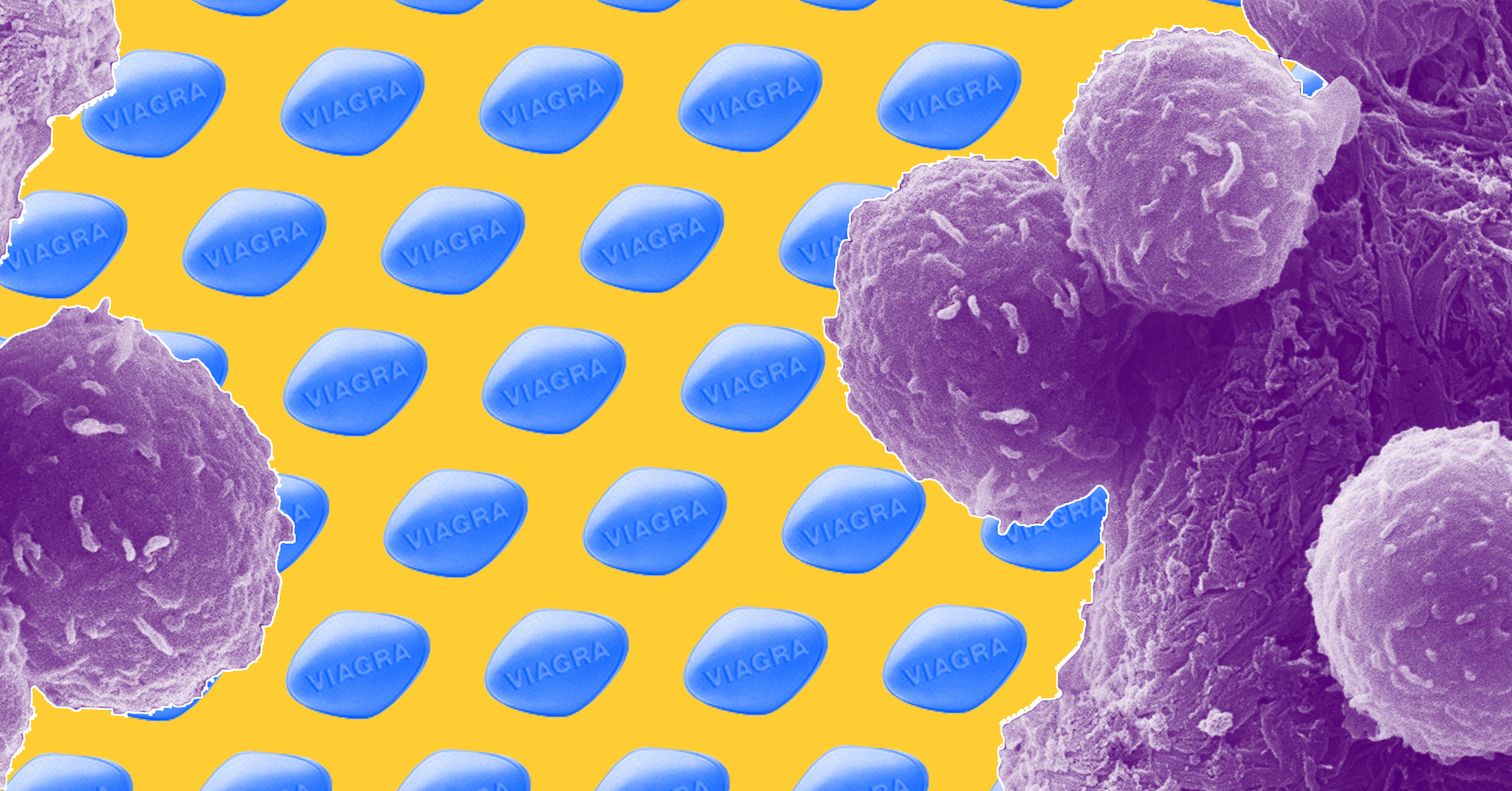Developing a new drug from scratch is hard work — it takes a tremendous pile of cash, not to mention several years, to go from early research to an FDA-approved medication. Cancer drugs in particular are very resource-intensive, costing a median $750 million to develop. This has cancer specialists looking to repurpose existing medications that may also be useful for patients battling cancer.
It’s with a twinkle in their eye and a skip in their step that they announce a new candidate that has researchers in unusually high spirits: Viagra.
It turns out the active compound in Viagra and other erectile dysfunction medications, PDE5, delays and stops the growth of tumors in mice and then some human patients, past experiments show. Now a new study, published yesterday in the journal eCancer Medical Science, sums up what researchers know about how these drugs interact with cancer, and also details the current efforts to repurpose the medication.
Drugs containing PDE5 were originally meant to help fight angina, a condition in which poor circulation can cause severe chest pain. It wasn’t until researchers actually ran clinical trials that they learned that their new drug helped pump blood to other places, too. So, naturally, patients started seeking out the drug for more recreational purposes. Whether you view the shift as a testament to drugmakers' resolve to make money, or a remarkable ability to roll with the punches, one thing is clear: Viagra was born, and it was a hit.
The study summarizes 25 studies that suggest Viagra may help fight different types of cancer, such as breast, colorectal, lung, pancreatic, and others that are in dire need of new treatments. It also brings attention to 11 ongoing clinical trials that are evaluating Viagra to see if it will rise to the occasion.
This absolutely does not mean that cancer patients can simply pop a Viagra, throw back a glass of champagne, and enjoy a wonderful evening as their tumors get laid to rest. Each of the clinical trials currently in the works are fairly preliminary, in the first or second of three required phases of testing before a medication can be approved for a specific use. Testing a drug at this stage is far from a guarantee that it'll make it to your local pharmacy — biomedicine is filled with the limp corpses of would-be drugs that ultimately reached a disappointing climax.
For now, PDE5 is not an approved cancer medication. And there’s lots of work to do before it might become one.
And yet, some doctors are optimistic and hopeful. Viagra is cheap — much cheaper than many existing cancer treatments. A low-cost treatment would have the potential to help a lot of people.
Share This Article
